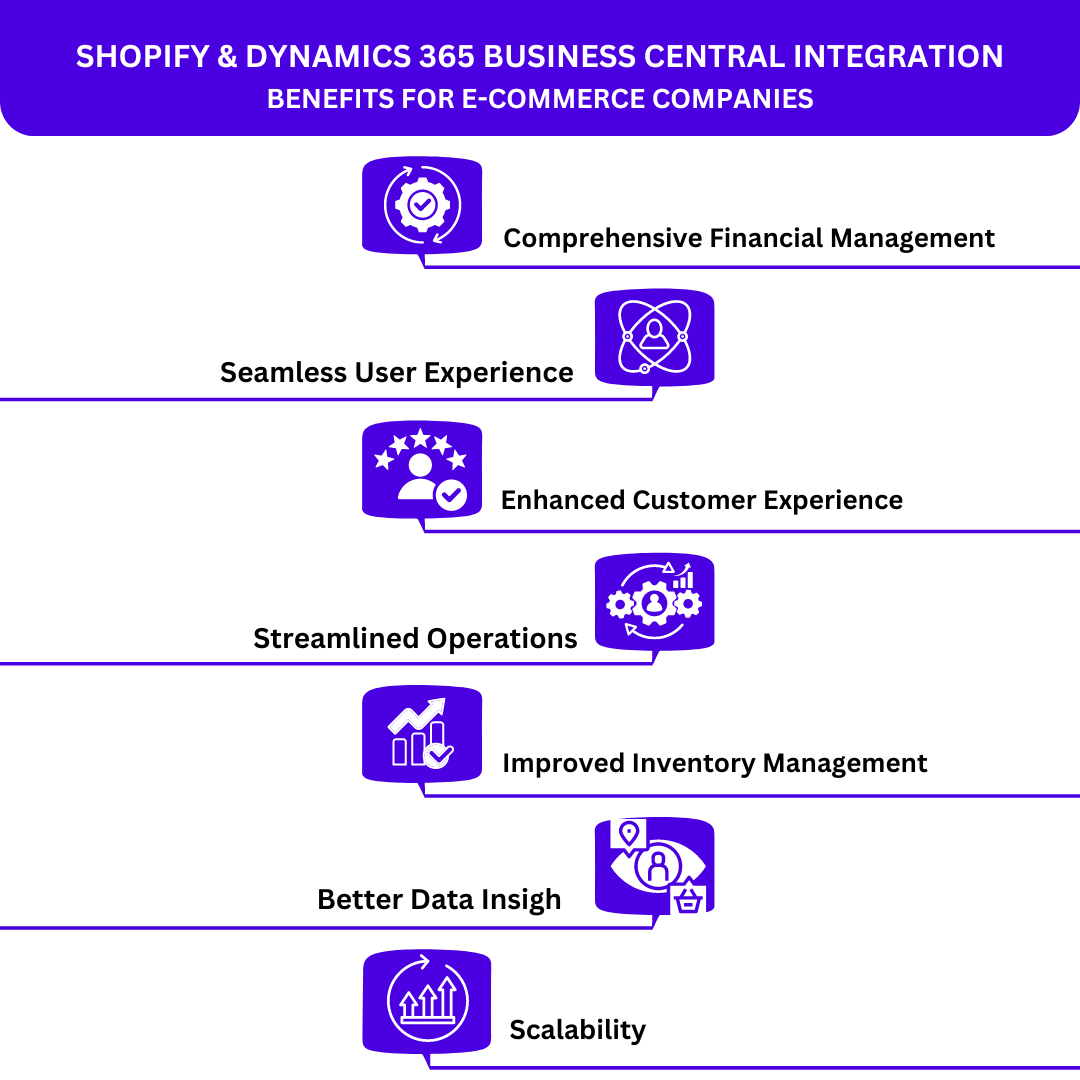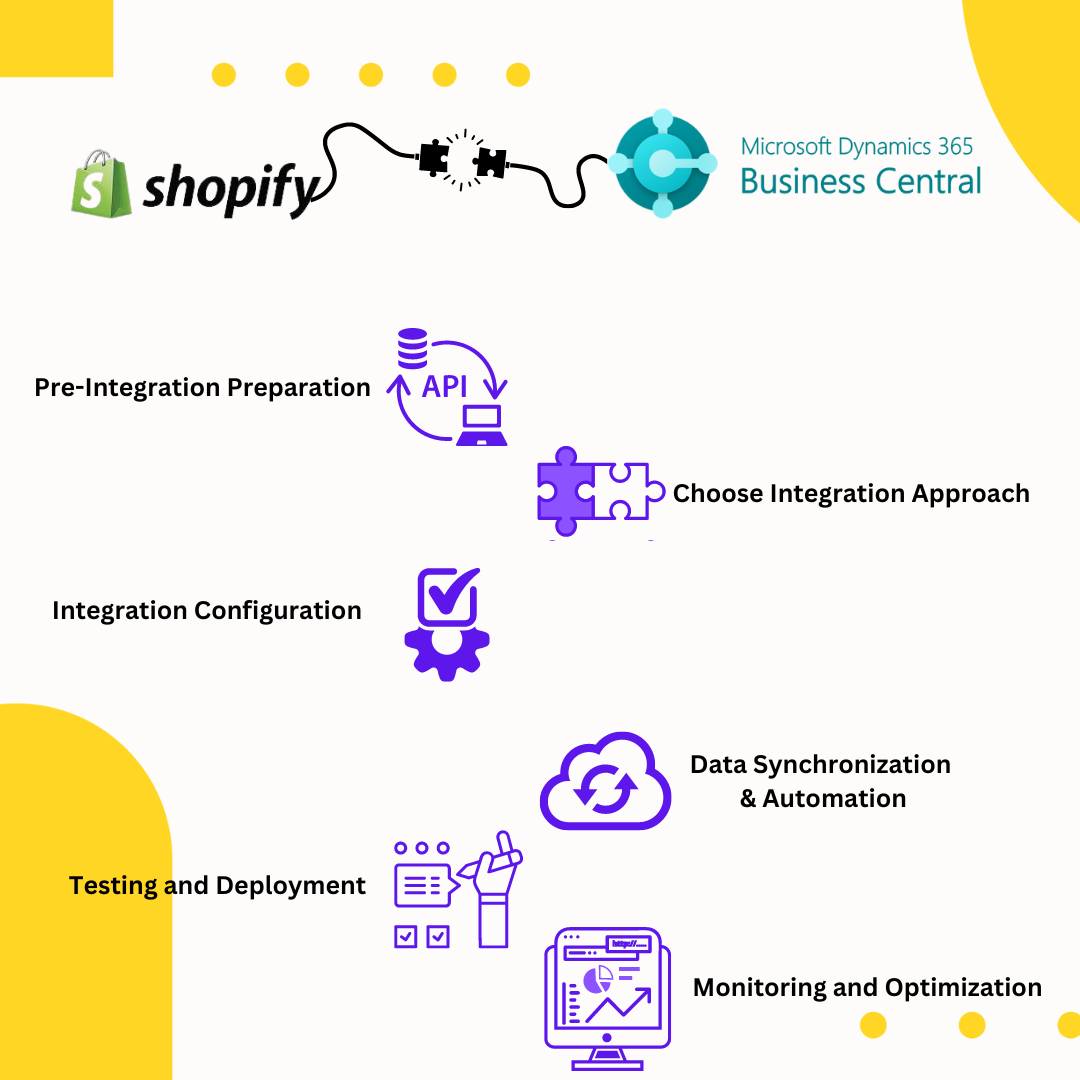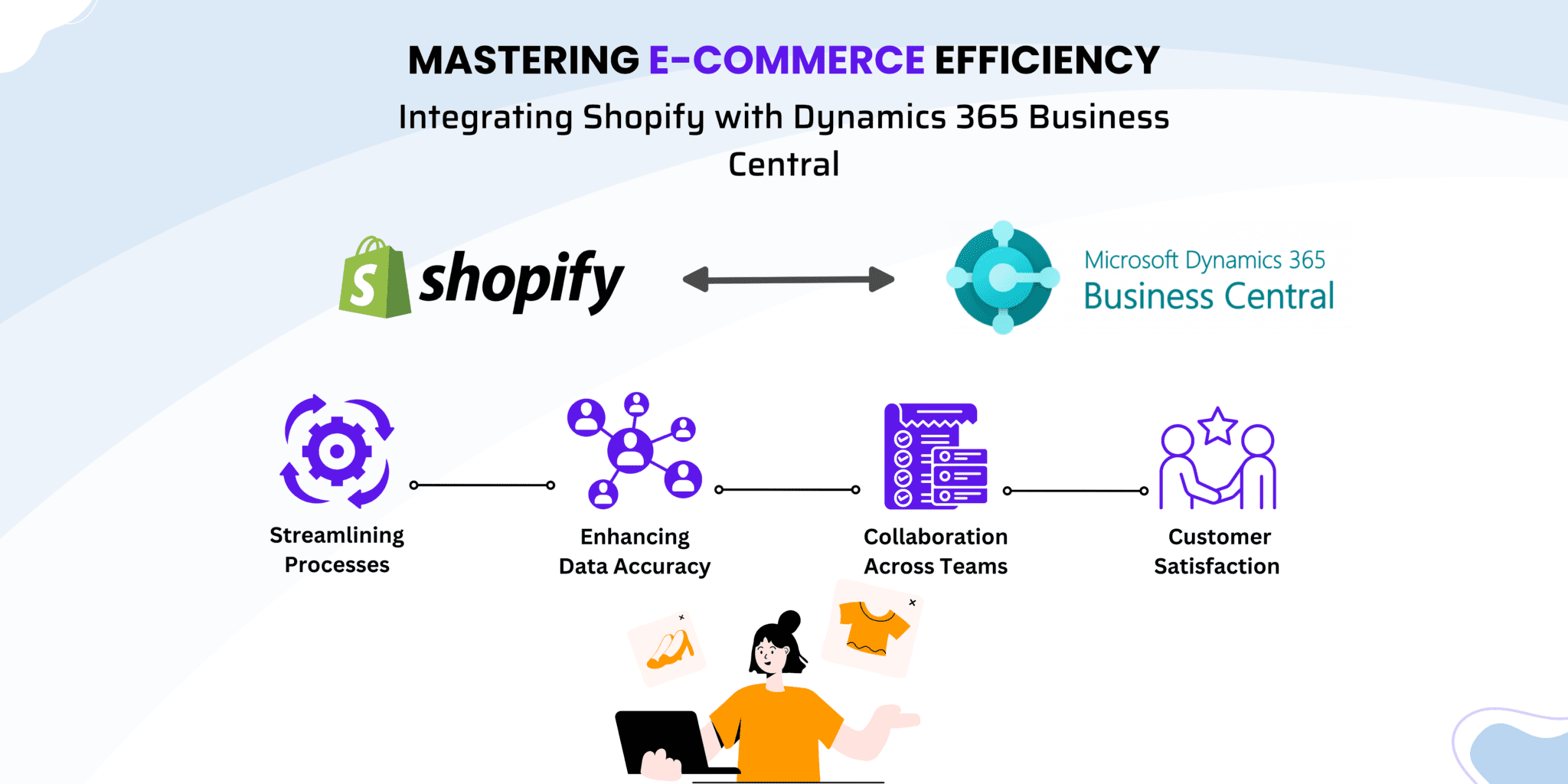Integrating Shopify with Dynamics 365 Business Central
In today’s dynamic e-commerce environment, integrating your Shopify online store with Dynamics 365 Business Central can revolutionize your business operations. This integration not only streamlines processes but also enhances data accuracy, collaboration across teams, and customer satisfaction. Here’s how you can leverage this powerful integration for maximum business impact.
Shopify Overview
Shopify is a leading e-commerce platform that allows businesses to create online stores and sell products/services. It offers a user-friendly interface, customizable templates, and extensive app integrations, making it popular among small to medium-sized businesses and large enterprises alike. Key features of Shopify include:
Online Store Management: Easily create and customize online storefronts to showcase products/services.
Order Management: Efficiently manage orders, track fulfillment, and handle customer inquiries.
Inventory Management: Track inventory levels in real-time, automate stock updates, and manage multiple sales channels.
Marketing and SEO: Tools for SEO optimization, email marketing, and social media integration to drive traffic and sales.
Payment Processing: Secure payment gateways and options for accepting payments globally.
Dynamics 365 Business Central Overview
Dynamics 365 Business Central is an all-in-one business management solution from Microsoft. It integrates financials, supply chain management, sales, and customer service processes within one unified platform. Designed for small to medium-sized businesses, D365 BC offers:
Financial Management: Manage finances, track cash flow, and streamline budgeting and forecasting.
Supply Chain Management: Control inventory, streamline procurement, and optimize warehouse operations.
Sales and Customer Service: Track leads, manage opportunities, and deliver personalized customer experiences.
Business Intelligence: Gain insights with built-in analytics and reporting to make data-driven decisions.
Integration Capabilities: Easily integrate with other Microsoft services and third-party applications through APIs.

Key Benefits for E-commerce Companies
Streamlined Operations:
Unified Data Management: Sync data between Shopify and Dynamics 365 BC, ensuring that inventory, orders, customer information, and product details are consistently updated across both platforms.
Automated Workflows: Reduce manual data entry and errors by automating processes like order processing, inventory updates, and financial reporting.Improved Inventory Management:
Real-Time Inventory Tracking: Keep accurate track of stock levels in real-time, reducing the risk of overselling or stockouts.
Optimized Stock Replenishment: Use demand forecasting and historical data to maintain optimal inventory levels and make informed purchasing decisions.
Enhanced Customer Experience:
Faster Order Fulfillment: Streamlined order processing ensures quicker delivery times, enhancing customer satisfaction.
Personalized Service: Access to detailed customer data allows for personalized marketing and customer service, fostering loyalty and repeat business.
Comprehensive Financial Management:
Accurate Financial Reporting: Integrated financial data enables accurate and timely financial reports, helping in better decision-making and compliance.
Simplified Accounting: Automatically sync sales data from Shopify with your financial records in Dynamics 365 BC, simplifying bookkeeping and reducing errors.
Scalability:
Support for Growth: As your business grows, the integration can scale with you, handling increased transaction volumes and expanding product lines without compromising performance.
Global Reach: Manage multi-currency transactions and comply with various tax regulations, facilitating international expansion.
Better Data Insights:
Advanced Analytics: Leverage the powerful analytics tools in Dynamics 365 BC to gain insights into sales trends, customer behavior, and operational efficiency.
Informed Decision-Making: Use data-driven insights to make strategic decisions that drive growth and profitability.
Seamless User Experience:
Consistent Interface: Users benefit from a consistent interface across platforms, reducing the learning curve and improving productivity.
Centralized Management: Manage all aspects of your e-commerce and back-office operations from a single platform.

Integration Steps between Shopify and Dynamics 365 Business Central
1. Pre-Integration Preparation
Activate Shopify Account: Ensure you have administrative access to your Shopify store and generate API credentials (API Key and Secret Key) from the Shopify Admin dashboard under the “Apps” section.
Subscribe to Dynamics 365 Business Central: Choose the appropriate subscription plan that includes financial management and inventory modules. Ensure administrative access to configure integration settings.
2. Choose Integration Approach
Utilize Existing Connectors: Check if there are pre-built connectors available on the Shopify App Store or Microsoft AppSource specifically designed for Shopify-Dynamics 365 Business Central integration. These connectors simplify the integration process by handling data mappings and synchronization.
Custom Integration: If no suitable connectors are available, or if you have specific customization requirements, consider developing a custom integration using APIs provided by Shopify and Dynamics 365 Business Central.
3. Integration Configuration
Configure Shopify API: Use the Shopify API credentials to set up integration with Dynamics 365 Business Central. Define data mappings for key entities such as orders, customers, products, and inventory.
Setup Dynamics 365 Business Central: Configure API access within D365 BC. Ensure that necessary permissions are granted for API usage and integration setup.
4. Data Synchronization and Automation
Sync Orders and Inventory: Automate synchronization of orders placed on Shopify with Dynamics 365 Business Central to update inventory levels, track fulfillment, and manage sales transactions in real-time.
Customer Data Integration: Ensure seamless integration of customer data between Shopify and D365 BC to maintain accurate customer records and enable personalized marketing and service interactions.
5. Testing and Deployment
Test in Staging Environment: Conduct thorough testing of the integration in a staging environment to validate data accuracy, functionality, and performance.
Deploy to Production: Once testing is successful, deploy the integration to the production environment. Monitor initial data synchronization and ensure smooth operation.
6. Monitoring and Optimization
Monitor Integration Performance: Continuously monitor integration performance post-deployment. Monitor data flows, error logs, and system performance to identify and resolve any issues promptly.
Optimize Integration: Refine data mappings, automate additional processes, and optimize workflows based on operational feedback and evolving business needs.
Conclusion: Transform Your E-commerce Operations
Integrating Shopify with Dynamics 365 Business Central is a strategic move toward optimizing your e-commerce operations. By centralizing data, enhancing collaboration, and automating processes, businesses can achieve operational excellence and deliver superior customer experiences. Embrace this integration to stay competitive in the digital age and drive sustainable growth.
Are you ready to unlock the full potential of your e-commerce business? Let’s integrate and innovate together!
#EcommerceIntegration #Dynamics365 #ShopifyIntegration #BusinessCentral #DigitalTransformation #CustomerExperience #OperationalExcellence




